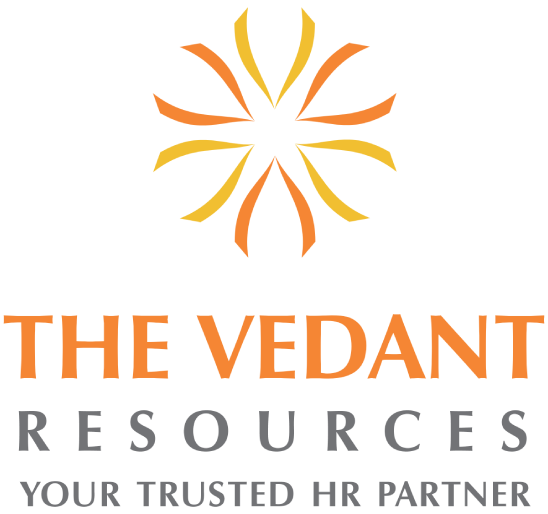
I. Introduction
As businesses evolve in a fast-paced and digital-first world, so do their workforce needs. From compliance complexities to managing remote employees, today’s human resource (HR) functions have grown increasingly sophisticated. What once required only an internal HR executive now demands legal knowledge, technical expertise, and strategic thinking.
HR outsourcing has emerged as a game-changer in this landscape allowing businesses to delegate HR tasks to third-party experts while focusing on growth.
With a growing number of startups and SMEs shifting from traditional in-house HR teams to outsourcing, it’s clear that the HR function is no longer confined to office walls.
In this blog, we’ll explore what HR outsourcing is, how it compares with in-house HR, and why it’s becoming the preferred choice for future-ready businesses.
II. What Is HR Outsourcing?
HR outsourcing is the process of delegating HR functions either partially or completely to an external service provider. These third-party experts handle tasks such as payroll, recruitment, compliance, employee engagement, and performance management on behalf of the organization.
Types of HR Outsourcing:
This refers to handing over all human resource functions to an external expert or service provider. More companies, especially startups, SMEs, and even large enterprises are choosing this model to streamline operations, save costs, and focus on business growth.
Businesses outsource only specific HR tasks, such as payroll processing, statutory compliance, recruitment, HR tech support, or policy creation.
1. Recruitment & talent acquisition
2. Onboarding & documentation
3. HRMS implementation
4. Payroll & tax filing
5. Compliance & legal advisory
6. Performance management
7. Employee engagement programs
8. Exit & grievance management
At The Vedant Resources Pvt. Ltd., we specialize in both partial and end-to-end HR outsourcing, offering custom solutions that adapt to your business needs.
III. Traditional In-House HR: Structure & Limitations
In-house HR departments are internal teams responsible for managing employee-related processes. Depending on the size of the company, these teams may include HR executives, managers, and specialists.
Direct Control: Managers can oversee HR activities closely.
Internal Culture Alignment: In-house teams have a better understanding of the organization’s culture and employee dynamics.
High Operational Costs: Salaries, software, and ongoing training can become expensive, especially for SMEs.
Limited Expertise: Small HR teams may not have specialists in areas like legal compliance or tech integration.
Time and Resource Intensive: Admin-heavy tasks often divert attention from strategic goals.
As a result, many businesses particularly startups and SMEs, find in-house HR teams inefficient and expensive in the long run.
IV. Key Benefits of HR Outsourcing
Outsourcing eliminates the need to hire full-time HR staff, invest in infrastructure, or purchase expensive software. You pay only for what you use making HR costs predictable and scalable.
HR service providers bring experienced professionals with deep knowledge of employment law, compliance, talent management, and HR tech platforms resources that may be unavailable internally.
As your business grows, HR needs change. Outsourcing partners can quickly scale their services to support hiring, expansion, or compliance needs.
Outsourced HR firms ensure your company complies with all relevant labour laws, tax filings, and HR policies. This helps minimize legal risks and penalties.
Outsourcing frees leadership from day-to-day HR issues, allowing them to focus on strategy, sales, and growth initiatives.
With efficient systems in place, employees enjoy smoother onboarding, clear policies, timely payroll, and responsive HR support leading to improved morale and retention.
V. In-House HR vs. HR Outsourcing for SMEs
| Category | In-House HR | HR Outsourcing |
| Cost | High (fixed salaries, tools, training) | Lower and variable |
| Expertise | Limited to team capacity | Access to specialists |
| Technology | Requires separate investment | Included in service |
| Compliance | Handled internally | Managed by legal experts |
| Scalability | Limited | Easily scalable |
| Speed of Implementation | Slower | Quick deployment |
Budget constraints restrict hiring of skilled HR professionals.
Lack of specialization in areas like labour law or digital HR systems.
Time consuming processes that take focus away from core functions.
In such scenarios, HR outsourcing becomes a practical and strategic choice.
VI. Why More Companies Are Choosing Outsourcing
A recent report by Deloitte found that 47% of businesses worldwide outsource at least one HR function, and the number is steadily rising.
Remote Work & Global Teams: Businesses now require digital, tech-enabled HR services that support remote and hybrid teams.
Talent Shortages: Fast hiring and onboarding through outsourcing is more efficient.
SME Growth: Startups and growing businesses need professional HR services without large overhead.
A mid-sized IT company partnered with The Vedant Resources for payroll, recruitment, and HRMS support. Within 6 months, they cut HR costs by 40% and improved onboarding speed by 50%
Forward-thinking businesses now view HR not as an internal department but as a service model on-demand, scalable, and performance-driven.
VII. Is HR Outsourcing Right for Your Business?
Rapid team expansion
Constant legal or compliance issues
High HR costs with low efficiency
Frequent errors in payroll or HR documentation
What specific HR functions do we need help with?
Do we have the internal bandwidth for compliance?
Can we afford HR tech tools independently?
What is the current employee satisfaction level?
Some businesses combine in-house and outsourced HR. For example, internal HR handles employee relations, while payroll and compliance are outsourced.
This approach offers the best of both worlds control and efficiency.
VIII. Choosing the Right HR Outsourcing Partner
Selecting the right partner is critical to long-term success.
Experience in your industry
Strong track record and client testimonials
Technology expertise (HRMS, automation)
Clear understanding of compliance laws
What services are included in your pricing?
Do you offer customized solutions?
How do you handle sensitive employee data?
Can you scale services as we grow?
Ensure the partner has robust data protection protocols and clearly defined Service Level Agreements (SLAs) for response time and service quality.
Ensure the partner has robust data protection protocols and clearly defined Service Level Agreements (SLAs) for response time and service quality.
Conclusion
HR outsourcing is no longer just a cost-cutting solution—it’s a strategic advantage for growing businesses. It reduces overhead, increases efficiency, ensures compliance, and enhances employee experience.
In a business world where agility, speed, and compliance are key to growth, outsourcing your HR could be one of the smartest decisions you make.
If you’re evaluating your HR model, it’s time to ask:
Is your current HR setup supporting your growth—or holding it back?
👉 Partner with The Vedant Resources Pvt. Ltd.
Let’s build a smarter, scalable, and compliant HR system—together.
Contact us today to schedule your free HR consultation.


